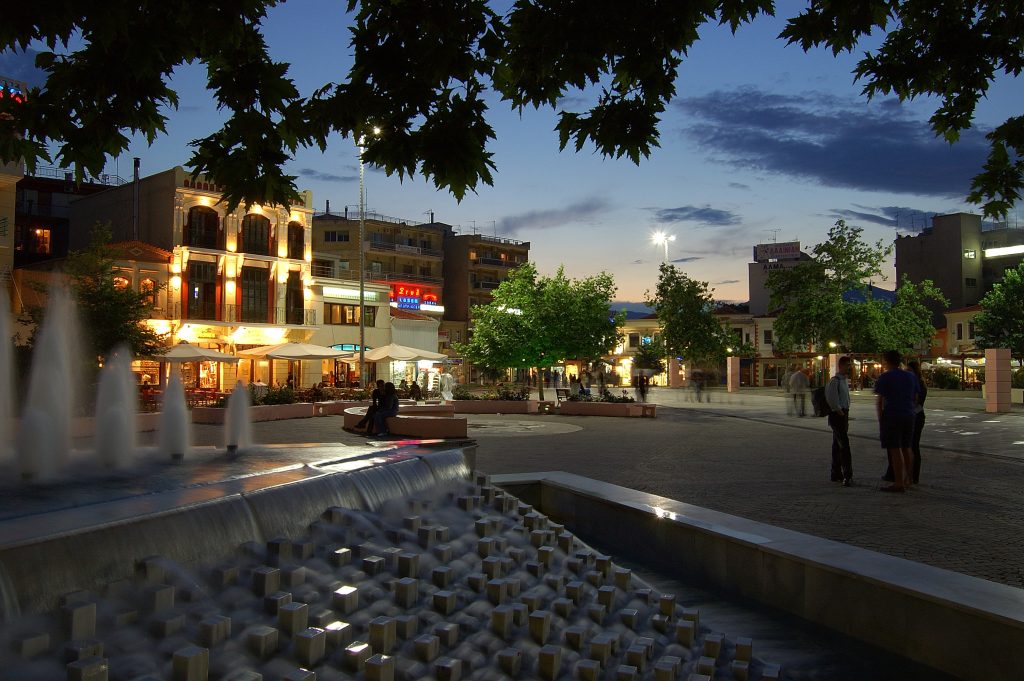Getting ready for renewable energy production
Until 2017, municipalities in Greece were not able to participate directly in large-scale energy production and distribution, but were limited to small-scale infrastructure like PV panels on rooftops. They were dependent on the centralised national system, which runs mostly on fossil fuels and is comparatively expensive. Komotini had therefore been trying to improve its climate-friendliness through passive measures like switching to LEDs for street lighting. But in 2017 the legislation changed, and many municipalities are now looking for ways to switch their energy supply to more renewable sources and turn from passive consumers into active producers.
One of them is Komotini. The administration is currently exploring the possibilities of solar and wind power installations in its area. A consulting firm is analysing the potential for different renewable energy options, and will sum up its findings and advice in a study. This firm will also look at funding opportunities for renewable energy projects. If successful, some form of renewable energy generation might soon be constructed in Komotini to supply the residents with clean energy and reduce dependence on the national supplier.
The municipality is also planning to invite residents to invest in decentralised clean energy sources. For example, farmers in this agricultural region might be eligible for support from the central and regional administration to install solar panels. This is especially important as farmers use a lot of energy for irrigation.
Retrofitting strategies
Komotini is also planning to start renovating and retrofitting public buildings. The city administration is currently scouting EU funds to find a suitable finance option for retrofitting municipal buildings. It has already applied to national and regional funding programmes for two projects. The first is the retrofitting of a school complex (two high schools with about 600 students and one gym), including insulation, ventilation, cooling-heating systems and the installation of a 100kW PV panels unit, all for a total budget of €3.5 million. The second is the retrofitting of the city’s main indoor sports arena (insulation, ventilation, cooling-heating systems) with a budget of €1.5 million. Another €3 million project has been approved to retrofit municipally owned buildings used by the local university, which will will receive funding to upgrade the insulation, heating and glass panels of these buildings. The municipality is preparing for similar projects in other large school complexes.
Citizen involvement
Komotini has very active resident groups and good communication between the city administration and the residents, especially due to its ample experience with participatory planning. In the past, local action groups have often taken part in designing urban policies, and the city administration knows how to keep local rights holders involved in the planning period. One example is the Urban II Community Initiative Programme, an economic and social development programme which focused on including the most vulnerable parts of the population in the development process. It saw infrastructure upgraded, as well as environmental refurbishment of the city and skills-building initiatives for unemployed people.
The energy department will now make use of experience with community-led development gained by other departments to ensure that residents are included in shaping the energy transition process.
Ambitious future plans
The first goal of Komotini’s administration is to develop a detailed roadmap for the energy transition in the near future, including concrete targets. The city had developed a local energy plan back in 2014 as part of its involvement in the Covenant of Mayors initiative, but due to financial constraints this could not be implemented until now. But with legislation now allowing municipal energy production, Komotini looks set to turn into a local energy producer that, over time, could become self-dependent.

